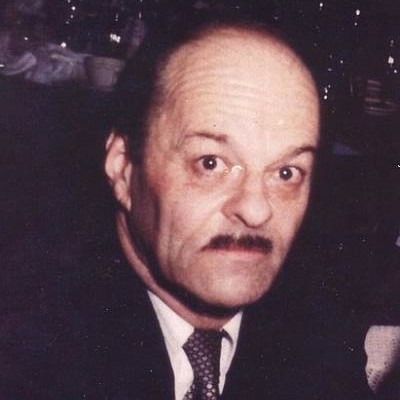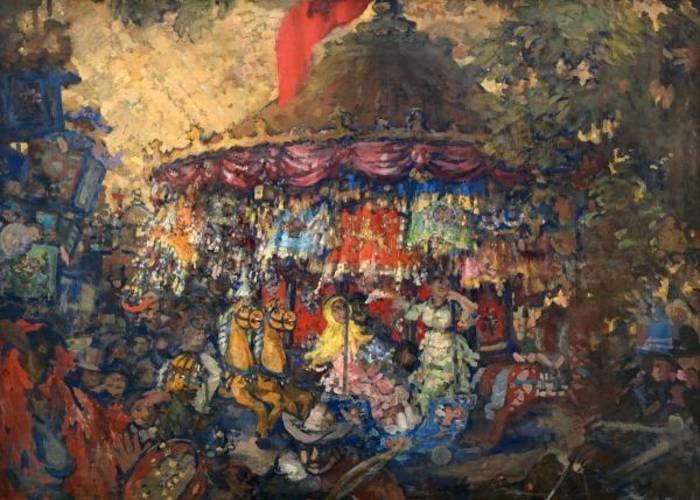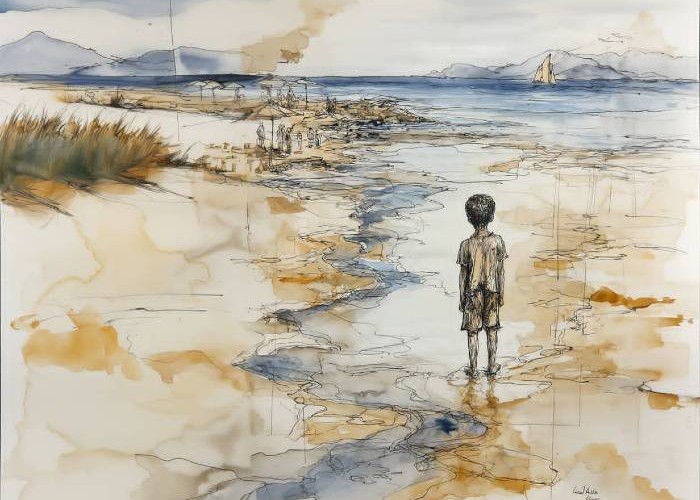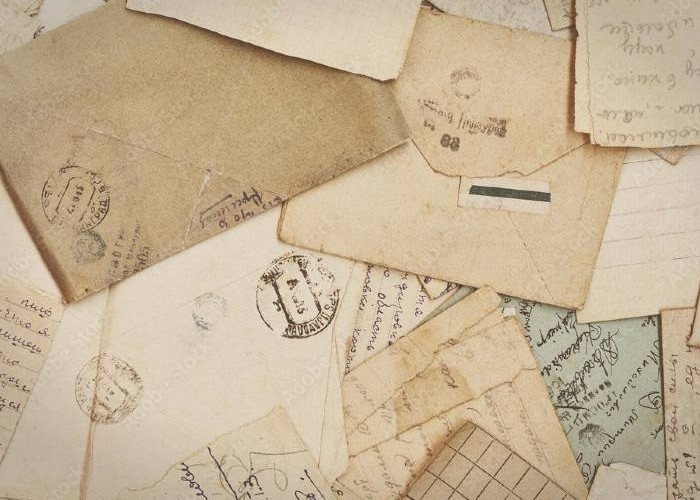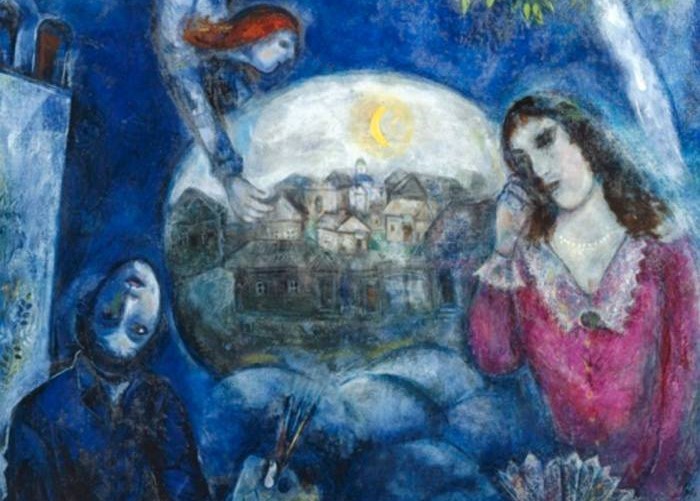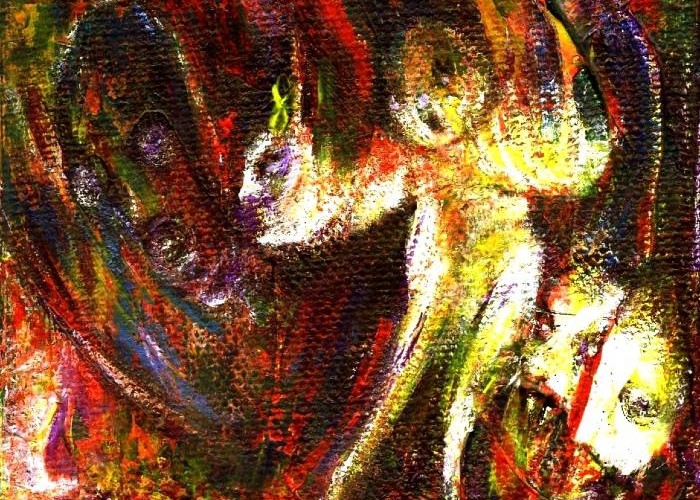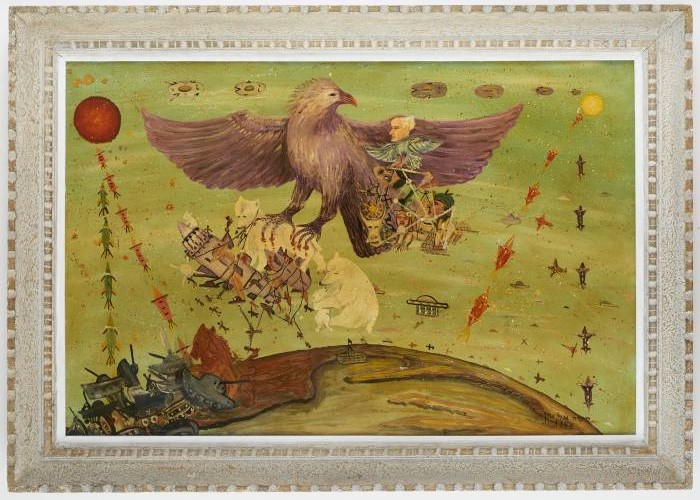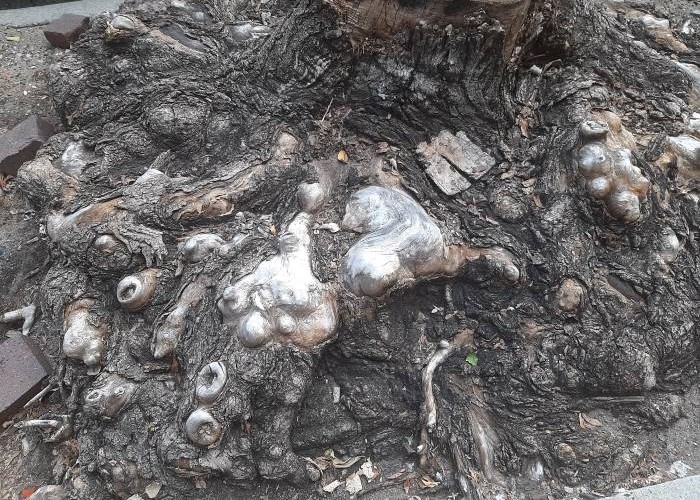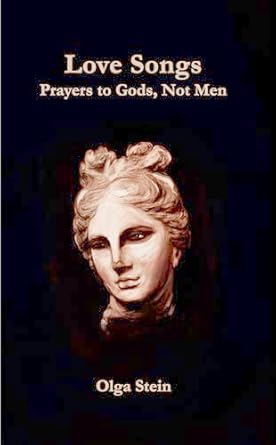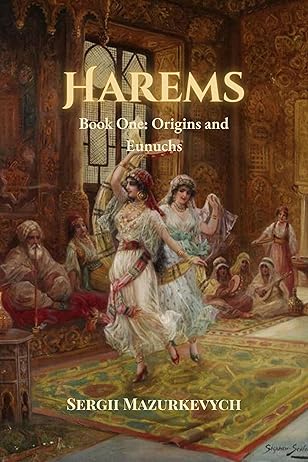CHAPTER 1 (from “Above Water”)
At eight o’clock sharp Harry stood on a corner of the “little ghetto.” That was where he was ordered to wait for an SS man he had spoken to in the afternoon. Harry was worried. Perhaps this rendezvous was a joke that could cost him his life.
Harry had realized that hard labor for the German war machine was going to break him down completely in a couple of months. He had made up his mind to escape from the Nazi hell.
More than three months ago, his mother had been marched to a “special camp” along with thousands of Jewish women, children, and disabled. Harry had a foreboding that he would never see his mother again.
It was a risky trick Harry was going to play to get out of the “little ghetto,” where able-bodied Latvian Jewish men spent the night. The “big ghetto” was now occupied by Jews from Austria and Germany.
He had noticed a young SS man who seemed rather approachable. Harry told him that he knew of a Riga apartment in which the former Jewish owners had hidden a lot of valuables.
Now, it was already past eight. Harry was nervous and despondent. But there they came — the SS man and his comrade.
Harry had not expected such a positive reaction to his hint. The Germans gave Harry an SS uniform and army boots. They ordered him to put them on.
Then they got into a military vehicle and soon reached the city center. The SS man driving the car asked for directions to the building that had the mysterious treasures.
Having arrived near the building, on the corner of Matisa and Krishyana Barona Streets, Harry asked the Germans to wait for a couple of minutes. He would find out if the apartment was still empty. The Germans trusted him. They didn’t have any suspicion that the Jewish prisoner might fool them.
Harry had known this building since childhood. There is an entrance on Krishyana Barona Street and another around the corner on Matisa Street. If you know the long hall connecting both entrances, you can enter the building on Krishyana Barona Street and leave it on Matisa Street.
That was exactly how Harry got rid of the Germans. He left the building on Matisa Street and went on towards the medieval part of Riga. To get there he had to pass Adolf Hitler Street, formerly known as Liberty Street. His way led him to the boulevard with its big monument erected in honor of Latvian independence. There were not many people on the street. Nobody paid attention to the fast-walking SS man.
On his way, Harry imagined how enraged the two Nazis would be—fooled by him, a Jewish prisoner— and how they would curse him. He was aware that having outsmarted the SS men was only the beginning of a risky path to freedom.
Harry reached the building on Valnyu Street, where an old friend of his, Alexander Kieslowski, had lived before the German occupation.
He had made Alexander’s acquaintance at Riga University several years ago. Alexander hated any kind of totalitarianism. But who could know how people might react to unexpected requests in these terrible times?
Harry was taking chances by visiting Kieslowski, but there was no way to avoid it.
At the entrance to the three-story building where Alexander had lived, Harry waited for a short while. He felt his heart pounding. Once he had calmed down, he climbed the steep stairs. He rang the bell.
The door was opened by Alexander’s sister Anna. He hadn’t seen her in more than a year. She didn’t recognize him. She seemed perplexed by his SS uniform. Probably she couldn’t make out the connection between his familiar features and the uniform he was wearing. He said, “I’m Harry, Alexander’s friend. Last spring Alexander introduced me to you in the city park near the University. I shared your and Alexander’s company at a garden restaurant. Despite this uniform, I’m not a Nazi. I’ll explain everything to Alexander as soon as I see him.”
“Now I remember you,” Anna replied. “Please come in. I haven’t forgotten you. We had a very good and interesting conversation in the city park last year.” She smiled warmly, obviously relieved to hear Harry’s explanation.
“Is Alexander at home?” Harry asked.
“Alexander left for Tukums in February. He got a job there. Do you want to visit him there?”
“Yes, I would like to. Could you give me his address?”
Anna wrote down Alexander’s address on a piece of paper and gave it to Harry.
Unexpectedly, she asked him, “Do you have enough money for the trip?”
Harry felt great relief. Of course, he had no money at all. He said, “I’m so sorry, Anna. I haven’t got a single penny. As soon as possible, I’ll pay you the money for the train to Tukums.”
She smiled, giving him the money, and said, “As soon as the war ends, and if we are still alive, you’ll invite Alexander and me to the same garden restaurant where we got acquainted and had such a good conversation. Good luck.”
Harry reached the railroad station in about fifteen minutes. He knew where to check the train schedules. A train for Tukums was leaving in ten minutes. He bought a ticket and found his platform. The train arrived and Harry got into an empty compartment. He had hoped to be left alone, but he had to share his compartment with unwelcome company: A minute before the train was to leave, a Wehrmacht officer, a first lieutenant, saw him and got into his compartment.
They exchanged the “Heil Hitler” salute. The officer asked rather politely if Harry minded sharing his company.
From the officer’s pronunciation of the German “R” Harry concluded that he was from Berlin or its surroundings.
Harry smiled and kept silent. A conversation with the Wehrmacht officer could take a sinister turn for him. But the first lieutenant turned out to be rather talkative. His first question was related to Riga.
“How do you like the city?”
“It’s not bad at all. It’s an old Hanseatic city. It was founded at the beginning of the thirteenth century.”
“You are very knowledgeable. Where are you from?”
Harry had expected this question. “I’m from Koenigsberg.”
He knew that in Koenigsberg German pronunciation was the same as in Riga.
His response seemed to satisfy the German officer. He said he had visited Koenigsberg before the war. He wanted to know where Harry had lived.
Without batting an eye, Harry said, “On Kant Street.”
He knew that the German philosopher had taught at Koenigsberg University, so his reply was quite plausible.
There was a short pause in the conversation, but it was clear enough that the Wehrmacht officer was extremely garrulous. Harry realized that he had to take control of the conversation. Therefore he asked the first lieutenant if he was from Berlin.
“Why do you think so?”
“You have a Berlin accent,” Harry said.
The first lieutenant seemed glad he’d been asked this question.
“I’m from Cottbus. It’s very close to Berlin. I know Berlin well. A cousin of mine lives there. Before the war, the whole family would get together on his birthday.”
The man from Cottbus started telling Harry about all his uncles, aunts, nephews, and nieces, their characters and their occupations.
The train was approaching Dubulti, a Yurmala seaside resort. The first lieutenant was in a hurry to get off the train. He had an appointment there. He thanked Harry for his good company and off he went.
It took an additional fifty minutes to reach Tukums. Fortunately Harry was left alone. When he got off in Tukums, he asked a railroad man how to get to the street he needed.
It took only a few minutes to reach Alexander’s house. He rang the bell. Alexander opened the door, and he recognized Harry instantly.
“What does this masquerade mean?” he asked.
“I’ll explain it to you and you will understand my situation. Where can we talk undisturbed?”
“Come in and relax. Have you eaten anything today?”
“Almost nothing.”
In a couple of minutes, Alexander gave him bread and some soup.
“We can talk here, Harry. Besides a deaf old woman, there is nobody here.”
Harry told Alexander the whole truth.
Alexander listened attentively. From time to time he asked a brief question. After having heard Harry’s story, he said, “I would keep you here, but this is a small place, and there is even a sign that Tukums is judenrein.∗ To play it safe, we should avoid this small town. There is too much curiosity here. For a couple of days you will stay with me. The day after tomorrow I’ll have a day off. I’ll go to Riga and speak with my sister Anna about keeping you in our apartment. We have two rooms. You could live there in my room. I hope it will be all right.”
Alexander Kieslowski was the same age as Harry. Both were twenty-five years old. Alexander was—like Harry—a linguist. Before the occupation, he had studied at the Language Department of Lodz University. He knew German well. He had planned to write a dissertation on the stylistic peculiarities of Heinrich Heine’s poetic works.
Because of the war and the German occupation, he had to postpone his dissertation plans. Heine was anathema for the Nazis. In 1933, when books written by Jews, antifascists, and democrats were being burnt by the Hitlerites, Heine’s works were condemned by the Fuehrer and his followers. Heine was an archenemy as he was not only Jewish, but had satirized German narrow-mindedness in many of his works.
Harry knew it too well.
When he had attended a German high school, his literature teacher told the class that, after the Christmas vacation, they would start studying the poetry and prose of the eminent German poet Heinrich Heine. But a week later, Hitler became chancellor. Immediately after Hitler seized power, Harry’s teacher declared in front of the class that Heine had been a decadent Jewish writer and they wouldn’t study him.
During the occupation, Kieslowski tried to conceal the topic he had planned for his dissertation. If the Nazis got to know about it, he could get into trouble.
The Kieslowski family had come from Poland: They moved from Lodz to Riga in 1938.
Jozef Kieslowski, the head of the family, was a textile engineer. In Riga, he got a managerial job in his field. His wife Danuta was half Jewish. The Gestapo got to know about it and demanded that she be sterilized. Jozef and Danuta lived in a house not far from the factory in the outskirts of Riga.
Both Jozef and Alexander had foreseen the German aggression. They had hoped to find security in Latvia. But history took another turn.
Alexander and Anna went to see their parents rather seldom. Everybody was busy. The twenty-two- year-old Anna had attended courses for medical nurses. She got her diploma and was hired as a nurse in a Riga hospital.
As Alexander had promised, he went to Riga on his day off. He returned in high spirits. Anna had agreed to hide Harry in their apartment, as long as it would be necessary. She was expecting him the following day, and would take the day off.
Before Harry’s departure, Alexander gave him money for the train ticket and for a taxi. With good reason, he advised Harry to avoid walking from the Central station to Valnyu Street.
“I’ll call Anna to ask about you. We’ve even made up a secret code: I will ask her about her toothache, and her answers will show me how you are. As soon as I have enough time, I’ll come and visit you both.”
Harry bought a ticket and boarded the train. In Bulduri, a Yurmala resort, the train stopped for a couple of minutes. Several people got on. Among them Harry saw a familiar face. But he couldn’t make out who it was. Then he recognized the tall civilian who had looked at him inquisitively. It was his former schoolmate, Baron Benedict von Tiesenhausen. Benedict was the descendant of an aristocratic Baltic family. His ancestors had been high dignitaries at the Czar’s court. Harry remembered Benedict as a decent fellow. In 1933, when Hitler came to power, most students turned out to be active supporters of Nazism, but Benedict was not among them. In Harry’s class, the Hitlerites wrote on the blackboard TAJ—Tod Allen Juden—Death to all Jews. These students had foreseen in 1933 what would happen in 1941. Benedict von Tiesenhausen had ignored Nazism at school. He despised Hitler and his followers. He once told Harry that the Fuehrer was just a miserable clown. In the current situation, Harry refrained from starting a conversation with Benedict. In any case, the baron had already moved to another compartment.
This excerpt is from “Above Water,” a novel by Leon (Leonid) Kossman. The novel was originally written in German and translated into English by the author.
